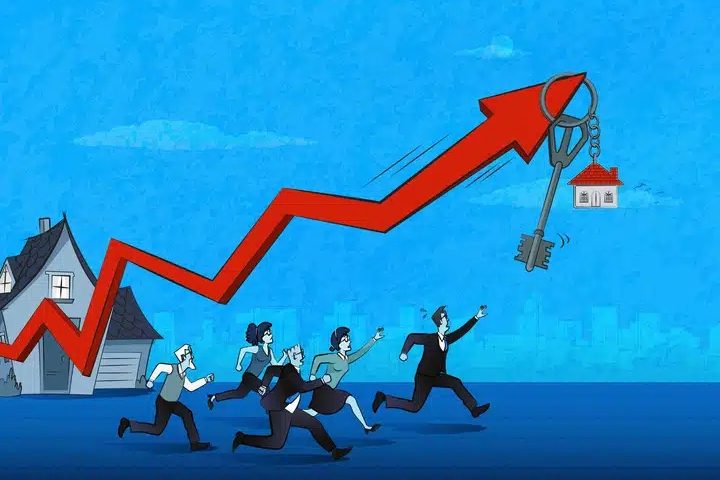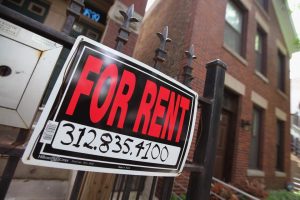Key Takeaways
*Just because there’s a recession doesn’t necessarily mean rent prices go down. In fact, during the 2008 recession, it was the exact opposite.
*In the current rental market, we have seen the rate of increase in rental prices come down, but this only translates to lower rent prices if you’re in select markets.
*If you’re a real estate investor, you probably know not to expect a perpetual rally in rent prices. This slowdown should have been anticipated.
The pandemic has wreaked havoc on America’s rental markets. From business closures that prevented renters from earning an income to eviction moratoriums to mass migrations that accompanied remote work opportunities, nothing looks like it did in February 2020.
There are indications that we’re seeing a decreased rate of price hikes for renters in recent months, but that doesn’t necessarily translate to rent decreases.
While there aren’t as many indications that we’re living through a recession, depending on your income bracket, it may feel like we are. However, whether or not we’re in a recession might not matter because recessions don’t necessarily mean rent prices go down.
Rent Is a Source of Sticky Inflation
Rising rents were part of what prompted the Fed to start increasing interest rates. When we start seeing significant rent increases, it’s called ‘sticky inflation.’ Sticky inflation happens when prices jump on expenses that experience pricing changes in cycles of 4.3 months or more.
This means it takes longer for rent to decrease once it goes up. It’s more common to see prices stabilize for a while rather than see prices come down in terms of real dollars.
Rental costs went up by 23.5% between October 2019 and October 2022, which negates any gains workers may have made in terms of wage growth during the pandemic. The odds that rent will come down enough to compensate for this historic increase are low.
Does Rent Go Down During a Recession?
It is rare for rent prices to go down in a way that would be meaningful to the renter. When we look at rent prices between 1940 and 2000, we see a slight decrease between 1940 and 1950 in median gross rent nationally. Then, there were increases in the decades following.
This data is specific to individual markets. Depending on your location, things could change. For example, in states like California, Hawaii, and Maryland, rent prices experienced a real-dollar decrease between 1990 and 2000.
There were quite a few recessions between 1940 and 2000, but we can also look at 2008 to evaluate rent pricing during a recession. Between 2007 and 2011, the worst years of the 2008 Recession, rental prices increased.
Things didn’t get better after the Great Recession. According to the Government Accountability Office (GAO), between 2007 and 2017, three million more households started paying more than 30% of their income toward rent. Half of them spent more than 50% of their income on rent.
Ultimately, no hard and fast rule says rent has to go down during a recession.
Has Rent Gone Down in Recent Months?
Rent increases throughout the pandemic have been historic. As people relocated, demand in some cities and bubble boomtowns exploded. Inflation and an out-of-control housing market drove up prices nationwide, but the migrations that came with remote work options made price hikes more dramatic in some locations.
Starting in late summer 2022, the pricing increase rate decreased month-over-month. Some of these decreases could be attributable to seasonal shifts in demand and pricing, but it is the first time the rate of increases has slowed since the rally began.
Things don’t look so hot when we zoom out to year-over-year pricing. As of November 2022, prices were up 7.4% nationwide compared to November 2021. Early in 2022, these year-over-year increases were double digits, so it’s good they’re not as intense anymore.
Nevertheless, this doesn’t necessarily translate into lower prices for renters.
In some areas, the rate of decrease has been significant enough to result in small reductions in the rental pricing. This is primarily happening in bubble boomtowns, where the local economy could not sustain the increases during the high-demand period of pandemic migrations.
Will Rent Go Down in 2023?
Much of what happens in the housing market is regional. While some areas may see real-dollar decreases in rent prices, the overall picture leans towards a state of stabilization where rents stop increasing at alarming rates but don’t necessarily come down.
Part of the reason stabilization can happen is that builders have been focusing on multi-family properties. For renters willing to live in apartments rather than single-family homes, inventory in some regions is increasing supply to meet demand.
Another reason things may slow down is that people aren’t moving as much. Fewer people have been buying homes since the Fed started rate hikes in March 2022, so fewer people are leaving the rental market. This has contributed to demand in recent months, driving rent prices up.
In this environment, renters are less likely to move. If they secured a rent contract earlier in the pandemic, the rate they’re paying now is likely far less than anything they could find now.
That said, if you did get a new rental contract in the past year and prices did meaningfully decrease, that may prompt you to find cheaper accommodations once new rentals did come down in terms of real dollars.
What Do Decreasing Rents Mean for Real Estate Investors?
If rents were to decrease in terms of real dollars, the losses are not likely to be as significant as the gains made in recent years. While it may feel like a short-term loss, you’re probably still earning more money than you would have in 2020. This is likely true for those who bought their real estate investments before the pandemic.
If you’re considering entering the real estate game, decreasing rents should be factored into your equation when purchasing a home or multi-unit property. But, their potential rate of decrease isn’t likely to eliminate a suitable property’s profitability over the long term.
That said, the rate of decrease will affect different markets disproportionately. You’ll want to keep a particularly close eye on things if you have properties in locations that experienced huge swings in demand during the first two years plus of the pandemic.
Having a well-diversified portfolio is particularly important when one of your assets may slow or drop in terms of profitability. You can check out Q.ai’s Investment Kits that span many industries to build more resilience into your portfolio. Q.ai offers a very unique option called Portfolio Protection that protects your gains and reduces your losses, no matter what industry you invest in.
Bottom Line
The National Bureau of Economic Research (NBER) hasn’t declared a recession yet. Whether or not we’re living through a recession, we’re certainly experiencing some peculiar economic times.
It doesn’t matter if this is a recession since this type of downturn doesn’t necessarily mean a decrease in rent prices. The economic circumstances surrounding each recession differ, meaning the result will vary.
Download Q.ai today for access to AI-powered investment strategies.








